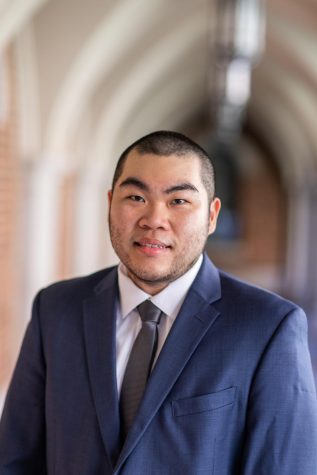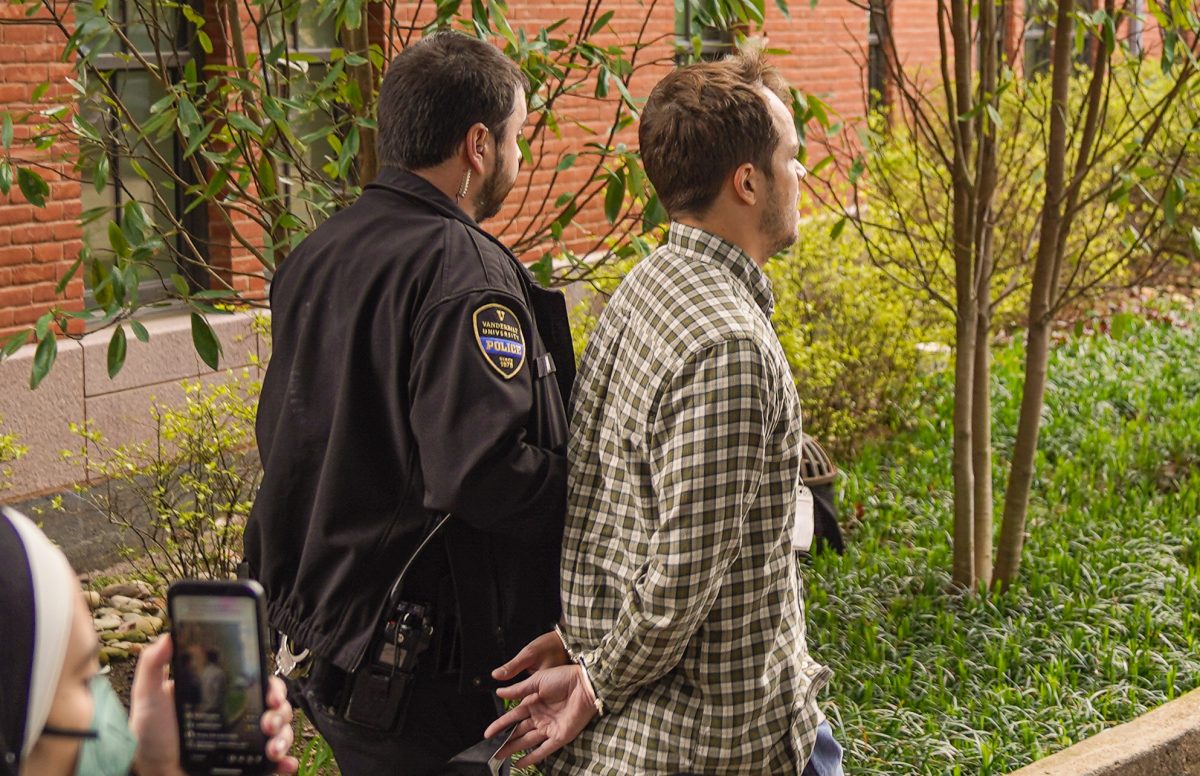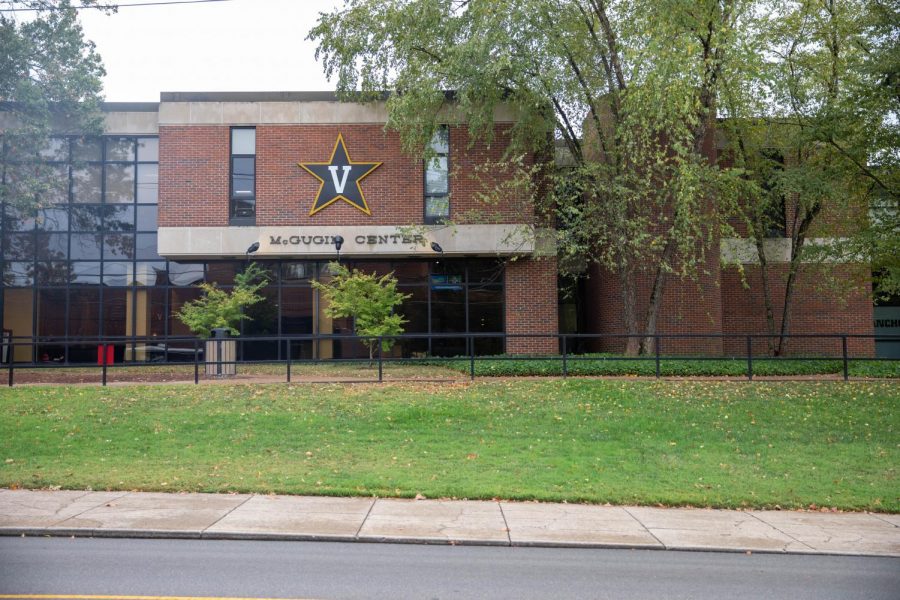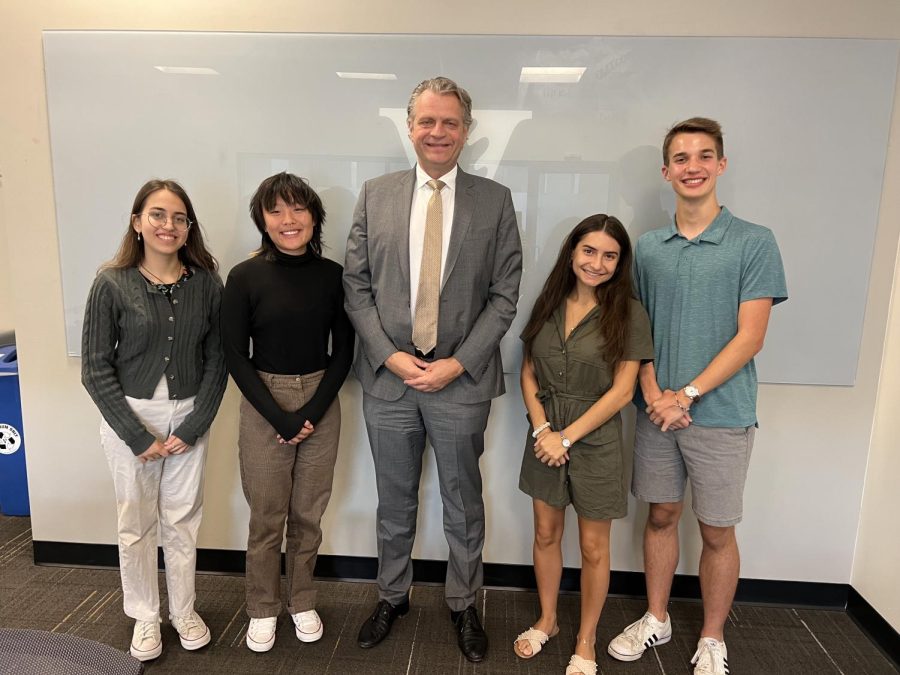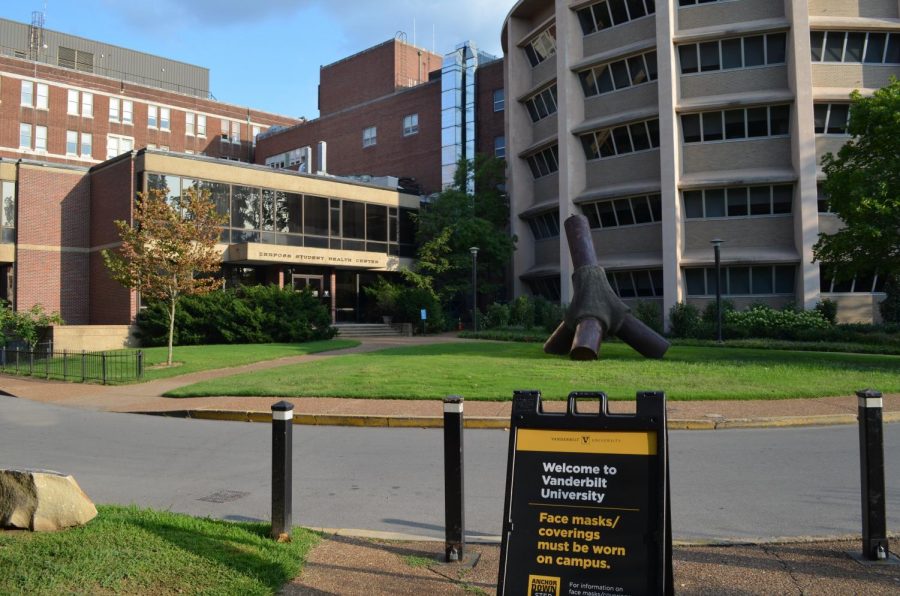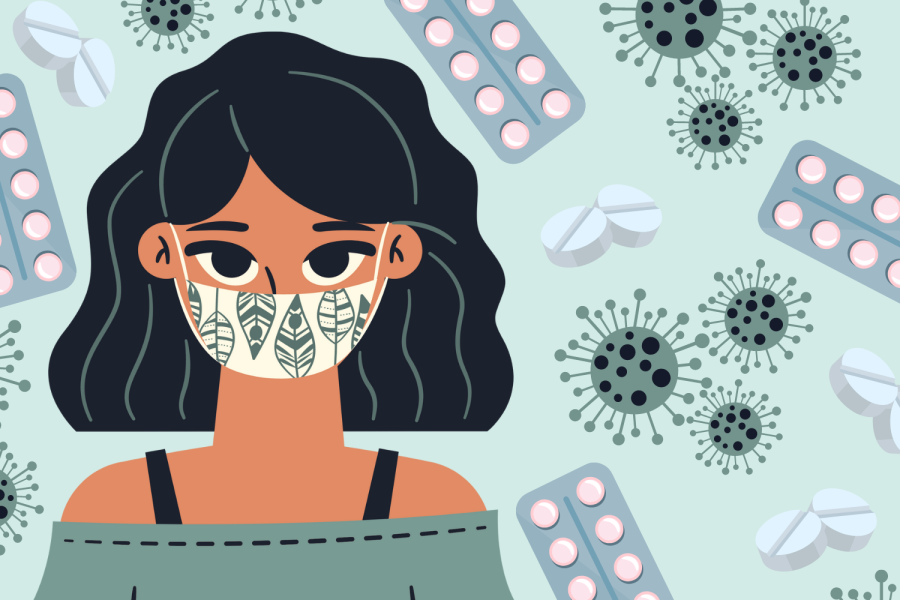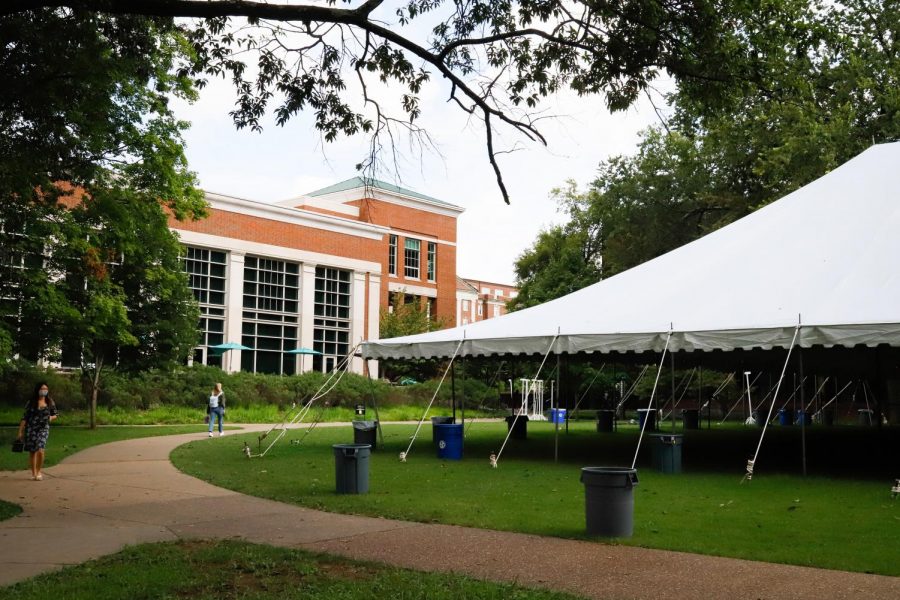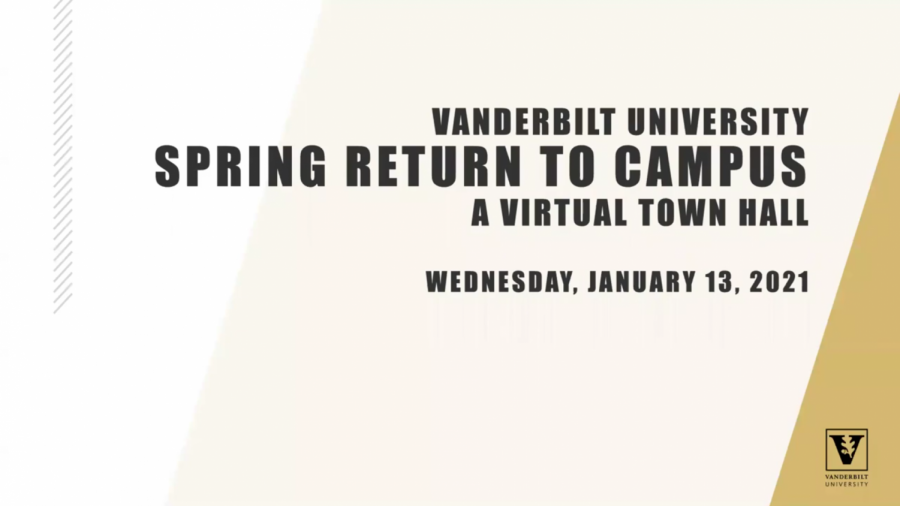Editor’s Note: This article has been updated to reflect that students must confirm their COVID-19 test kit mailing address by no later than 5 p.m. CDT on Thursday, July 23. The article has also been updated to include additional information about “prior to campus arrival” procedures.
Vanderbilt medical experts and administrators convened for a virtual town hall to discuss return to campus specifics and address community concerns at 2 p.m. CDT on Saturday.
According to Chancellor Daniel Diermeier, the town hall had over 1,700 registrations and over 120 submitted questions.
Following Diermeier’s introduction, president and CEO of Vanderbilt University Medical Center Dr. Jeffrey Balser explained how VUMC has been working closely with the campus and Nashville region.
“Among the various places your family could choose for college, this is one of the safer locations, and there are a lot of reasons for that,” Balser said.
Balser stated that although more cases of COVID-19 are emerging in the Nashville area, he believes Vanderbilt has control over the virus is the communication and close working relationship VUMC has with the city and mayor.
“The models we’re using are very accurate and they just focus on our region,” Balser said. “So the quality of data we can provide to the model is what makes it good.”
Additionally, Balser commented on the possible long-term health effects that contracting COVID-19 may present.
“What we hear is anecdotal reports of people having sustained damage to their lungs, or brain damage, or heart damage,” Balser said. “The truth is these situations are quite unusual. I don’t think we know yet or certainly don’t have strong evidence that there are long-term negative consequences that we can expect.”
Balser concluded by mentioning that VUMC currently has about 38 patients with COVID-19, an increase from the 25 patients that were being treated back in May. According to Balser, VUMC is a facility with 1,400 beds and he believes that 70 to 80 patients with COVID-19 being treated in about a month is an accurate forecast.
Dean of Vanderbilt School of Nursing Linda Norman then spoke to testing protocol and strategies both pre-arrival to campus and on campus throughout the semester.
“We will be mailing out test kits to the students [who will then] do a nasal swab test,” Norman said. “There is a helpline that, if anybody has any difficulty in being able to access it or needs help in being able to administer the test, that they’ll be there to do it.”
Norman stated that the reason Vanderbilt is having students test themselves before arriving on campus is that many younger people may have COVID-19 but are asymptomatic. According to Norman, if students do test positive before move-in, they will need to remain home until their healthcare provider clears them to return to campus. Pre-arrival testing is mandatory for both students who are residing in on-campus housing as well as students who will be living off-campus per Norman.
According to Associate Dean for Clinical & Community Partnerships Pam Jones, students will be receiving a communication from the university to confirm the mailing address that their individual testing kits should be mailed to.
“We heard loud and clear from people that getting testing in your own communities may be problematic, so we’ve come up with that solution to provide you with what you need,” Jones said.
According to the Return to Campus website, students must complete acknowledgement of Return to Campus requirements in Oracle Learn as well as complete their COVID-19 test kit in order to return to campus this coming semester. Students must also confirm the mailing address to which they want their COVID-19 test kit to be delivered to, no later than 5 p.m. CDT on Thursday, July 23. All undergraduate students will be required to complete pre-arrival testing within 14 days before coming onto campus for the first time. The kit will arrive between July 27 and Aug. 14, per the website.
Jones then iterated that testing for students who are exhibiting symptoms will be readily available from the Student Health Center (SHC) and the university’s partnership with VUMC. This is the most direct line of COVID-19 testing, per Jones.
“The secondary line of testing is asymptomatic screening testing,” Jones said. “All undergraduates will be tested before, and they will be tested once they arrive to campus. We will be doing that over a period of time no more than four weeks post-arrival.”
According to Jones, post-arrival testing serves to get a feel for how the campus population is doing once the semester begins. These tests, Jones said, will be the same nasal swab tests and will be “medically observed.” The testing results will be monitored and a team of nurses will be implementing contact tracing as appropriate. Jones later commented on the federal guidelines that govern patient confidentiality regarding student health.
“Essentially, parents will not be notified unless the student gives permission for the parents to be notified unless of course, they’re a minor,” Jones said. “We’re happy to work with the students to minimize stress on the family unit, but we have to be consistent with the federal guidelines.”
With regards to contact tracing on campus, Jones stated that a team of trained nurse practitioners will be conducting interviews with students while monitoring daily both their physical and mental health, especially pertaining to anxiety associated with contracting COVID-19. Jones then concluded by clarifying that students living off-campus will not be provided on-campus quarantine and isolation housing, but they will be provided with the same support in terms of contact tracing and self-isolation.
Dr. William Schaffner, Professor of Medicine in the Division of Infectious Diseases at Vanderbilt Medical School, then addressed the community to disseminate medical knowledge about the coronavirus.
“We define exposure [to COVID-19] as being within six feet of someone for at least 15 minutes, whether indoors or outdoors,” Schaffer said. “It’s not just passing someone in the corridor. Close contact means exactly that—it takes a little while for this virus to be transmitted from one person to another.”
According to Schaffner, both the flu and COVID-19 are respiratory infections in that they involve the lungs, the back of the throat and nose. Schaffner added that the tricky part for clinicians is that they can present themselves very similarly.
“We will be doing a lot of testing to ensure that [flu and COVID-19 cases] stay separate,” Schaffner said. “Come the fall, [the flu] is one respiratory virus that we can do something about.”
Schaffner encouraged everyone to get their flu vaccination this year and says that he expects this fall to be a “double barrel” in that people will have to deal with both the flu and COVID-19.
VUMC chief diversity officer Dr. André Churchwell also spoke about racial health inequality in regard to the pandemic.
“We know that certain populations are more susceptible to this coronavirus,” Churchwell said. “Particularly we know African Americans, Hispanics, Native Americans and Alaskans are more susceptible.
Churchwell attributed this disproportion in COVID-19 susceptibility to three major factors: a chronic stress effect that can lead to a diminution in immune response, social determinants of health such as access to healthcare and comorbidities, including diabetes, hypertension and obesity, that African Americans and Hispanic communities have in a much more preponderant manner.
After further discussion of health and safety protocol, Dr. Schaffner concluded by stating that masks will be “fashion-forward” for the foreseeable future.
“If we all work together in order to reduce the spread of this virus to, as they say, ‘flatten the curve,’ we can live with this virus, cope with it, keep its damage to a minimum—while all of us hope for an effective and safe vaccine,” Schaffner said.













